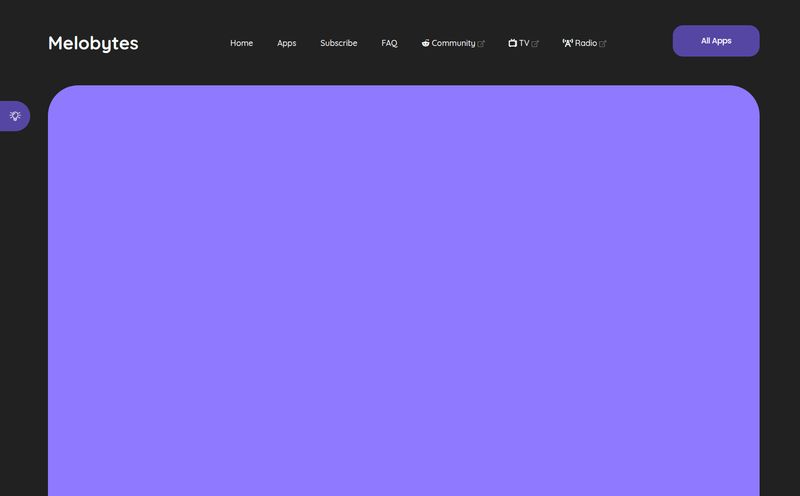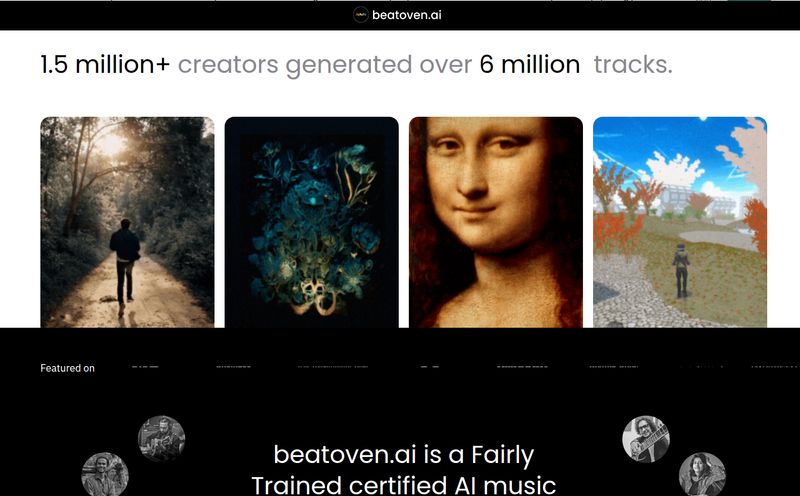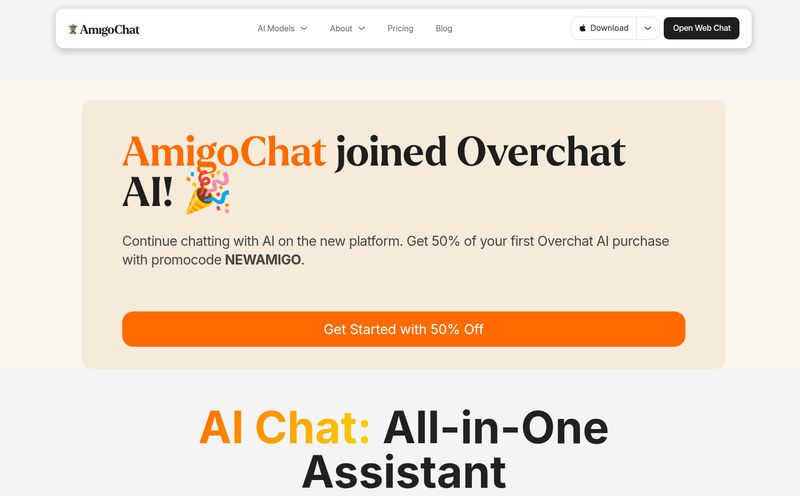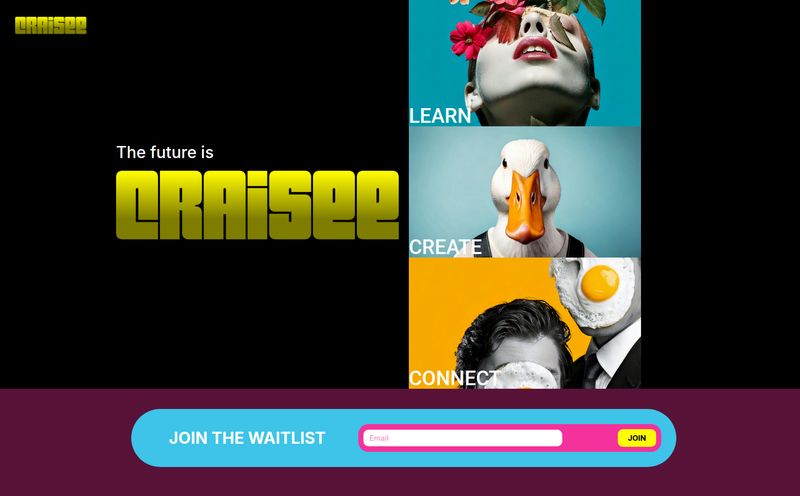Is This AI Chord Finder The Real Deal? My Honest Chord Identifier Review
If you're a musician, you’ve been there. You hear a song—that one perfect track—and an almost primal urge takes over. I have to play that. The next hour is a familiar, frustrating dance: you're glued to your speakers, hitting rewind a dozen times, trying to pick out that one weird chord in the pre-chorus. Or you fall down the rabbit hole of online tab sites, sifting through five different, slightly-wrong versions of the same song. It’s a grind. I've been burned by bad tabs more times than I can count.
For years, that was just the price of admission. But now, AI is stepping onto the stage, and it’s promising to be our new, tireless bandmate with perfect pitch. One of the latest players in this space is Chord Identifier, a tool that claims it can listen to any song and instantly tell you the chords. Sounds like magic, right? As a guy who spends way too much time generating traffic and dissecting trends, I’m naturally skeptical of big promises. So, I decided to put it through its paces. Does it actually work? Or is it just another bit of tech hype?
So, What Exactly Is This Chord Identifier Thing?
At its heart, Chord Identifier is a web-based tool designed to do one thing: recognize the chords in a piece of music automatically. You don’t download any clunky software. You just go to the website, upload an audio file (or, as I discovered, even a YouTube URL), and let the magic happen. It’s built on some pretty smart AI. The platform says its models have been trained with thousands upon thousands of songs, covering just about any musical style you can throw at it.
Think of it less like a simple tuner that hears one note and more like a seasoned musician who can hear a whole chord, understand its context in the progression, and even guess if it’s a tricky Cmaj7 or just a plain old C. That's the idea, anyway.
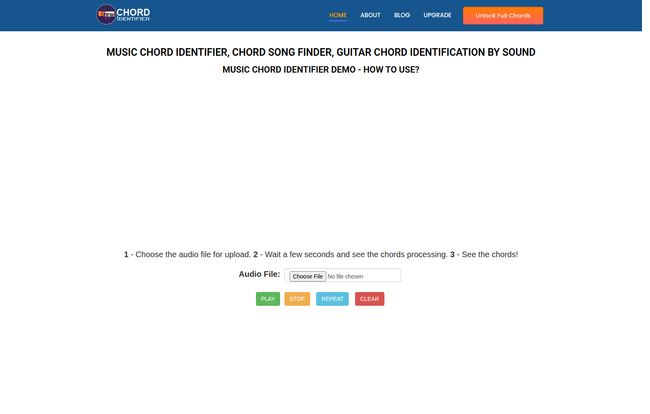
Visit Chord Identifier
Putting It to the Test: My First Impressions
The interface is clean. Almost deceptively simple. Just a big ol' button that says, “Choose File.” No clutter, no nonsense. I like that.
For my first test, I wanted to give it a fair challenge. Not a three-chord punk song, but not some obscure prog-rock epic either. I settled on “Fast Car” by Tracy Chapman. It's iconic, mostly straightforward, but has that beautiful, repeating arpeggiated riff. Could the AI pick up on the underlying harmony correctly? I uploaded the MP3, the site showed a little processing bar, and about 20 seconds later… bam. There they were. A full chord chart, timed to the song.
And you know what? It was dead on. It correctly identified the Capo on the 2nd fret and laid out the G, C, Em, D progression perfectly. I was genuinely impressed. This wasn't just a gimmick. This thing had ears.
The Good, The Bad, and The Nitty-Gritty
No tool is perfect, of course. After playing around with it for a few days, I got a much better feel for where Chord Identifier shines and where it stumbles.
The Accuracy is Kinda Spooky
The main selling point is its chord detection, and it delivers. I threw a few different genres at it—some old-school soul, a bit of modern pop, even a slightly distorted indie rock track. In almost every case, the results were either spot-on or so close that any small error was easily correctable. It seems to handle complex chords—sevenths, suspendeds, and the like—with a surprising degree of sophistication. The claim of using “advanced learning models” isn't just marketing fluff; it feels like there’s some real intelligence under the hood.
More Than Just a Guitar Tool
While the homepage mentions “Guitar Chord Identification,” it’s not limited to that. Since it analyzes the audio itself, it doesn't care if the chords are coming from a grand piano, a ukulele, a banjo, or a synth pad. This makes it a fantastic tool for any musician, not just us six-stringers. As a multi-instrumentalist myself, this is a huge plus. It’s a universal translator for harmony.
The Free Version vs. The Premium Subscription
Alright, let’s talk about the catch. The free version is more of a demo. You get to analyze one song per day, and it's limited to a 30-second clip. It's enough to get a taste and see that the tech works, but you're not going to learn a full song with it. To get the goods, you need to subscribe. Here’s a quick breakdown of what you're looking at:
| Feature | Free User | Premium User |
|---|---|---|
| Song Length | 30 seconds | Full Song |
| Daily Usage | 1 song per day | Unlimited |
| PDF Chord Worksheets | No | Yes |
| Chord Diagrams | No | Yes |
| Ads | Yes | No |
The premium features, like generating a PDF chord worksheet and seeing diagrams of all the chords, are genuinely useful additions, especially for teachers or more serious students.
Who is This Chord Finder Actually For?
I can see a few different types of musicians getting a ton of value from this.
The Enthusiastic Beginner
If you're just starting your musical life, this tool is a godsend. It closes the gap between the music you love and the music you can play. It removes a massive point of frustration and lets you get straight to the fun part: making noise. It's a fantastic practice aid for learning new chords and understanding how they form a song.
The Seasoned Player and Songwriter
For the more experienced musician, the benefit is different. It’s all about speed. Need to learn a cover for a gig this weekend? Done in minutes. Want to quickly analyze the chord progression of a hit song for your own songwriting inspiration? Easy. It’s a productivity tool that saves you from the tedious work of manual transcription. I could see myself using this to quickly chart out songs for my band, saving us a solid hour of practice time.
The Modern Music Teacher
This might be the killer app. Imagine being able to create custom, accurate chord sheets for any song your student wants to learn, right there in the lesson. It’s an incredible way to keep students engaged and excited. The ability to generate a PDF worksheet is the icing on the cake.
Let's Talk Money: Is the Price Right?
So, the big question. What’s it cost? The premium plan for Chord Identifier is currently $4.99 per month. That’s less than a fancy cup of coffee or a new pack of guitar strings. For what it does, that feels more than fair.
There's also a free trial to let you kick the tires. The website mentions both a “3 Days Free” offer and a “1-month trial for $0” on its pricing page. It's a little confusing, I admit. But either way, you get to try the full suite of premium features before you have to open your wallet, which is always a consumer-friendly move in my book. You can check the current offer on their pricing page.
Final Thoughts: A New Tool in My Digital Toolkit?
So, what’s the verdict? Is Chord Identifier a replacement for a well-trained musical ear? No, not entirely. Your ear is still your most important tool. But is it an incredible assistant, a musical co-pilot that can save you hours of guesswork and get you playing your favorite songs way faster? Absolutely.
It takes a historically difficult and time-consuming task and makes it almost trivial. For beginners, it’s an accelerator. For pros, it’s a time-saver. For teachers, it's a powerful new aid. For a fiver a month, it's honestly a bit of a steal. It's earned a permanent bookmark in my browser, and I have a feeling I’ll be reaching for it often.
Frequently Asked Questions
- How accurate is Chord Identifier?
- In my tests with various genres, it was impressively accurate. It’s not 100% infallible, especially with very complex or lo-fi audio, but for most pop, rock, and folk music, it's extremely reliable. It's far more accurate than many free tab sites.
- Can it identify chords for instruments other than guitar?
- Yes. Since it analyzes the sound of the recording, it can identify chord progressions played on piano, ukulele, synths, or any harmonic instrument.
- Do I need to download any software to use it?
- Nope. Chord Identifier is a fully web-based tool. All you need is a web browser and an internet connection. You can use it on your computer, tablet, or phone.
- Can I use a YouTube link instead of an audio file?
- Yes, the tool supports recognizing chords directly from a YouTube URL, which is a fantastic feature for convenience.
- What happens after the free trial ends?
- After the trial period, you will be billed for the monthly subscription to continue having access to the premium features. You can cancel anytime if you decide it's not for you.
- Is Chord Identifier really worth the monthly cost?
- For $4.99, if you are a musician who regularly learns new songs, teaches music, or writes your own material, the time it saves and the accuracy it provides make it a very worthwhile investment. It pays for itself in saved frustration alone.
Reference and Sources
- Chord Identifier Official Website: https://chordidentifier.com/
- Chord Identifier Pricing Information: https://chordidentifier.com/#pricing
